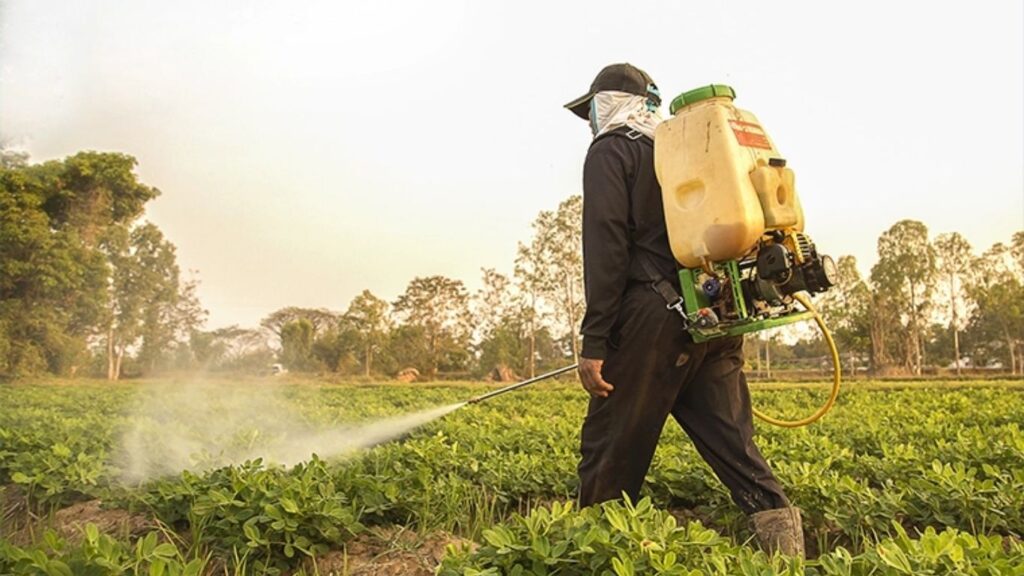Agriculture plays a vital role in feeding the world’s growing population. To meet the demand for food production, the agricultural industry has turned to various chemicals, including pesticides, herbicides, and fertilizers. While agricultural chemicals have undoubtedly increased crop yields, there is a growing concern about their impact on human health. In this blog, we will explore the human health effects of agricultural chemicals and what you need to know to make informed choices about the food you eat.
Understanding Agricultural Chemicals
Before delving into the potential health effects, it’s essential to understand the types of agricultural chemicals commonly used in modern farming:
1. Pesticides
Pesticides are chemicals used to control and manage pests, including insects, weeds, and plant diseases. Common pesticides include insecticides, herbicides, and fungicides. While pesticides are designed to protect crops, they can also leave residues on food and have the potential to affect human health.
2. Herbicides
Herbicides are chemicals used to kill or inhibit the growth of unwanted plants, often referred to as weeds. Glyphosate, the active ingredient in the popular herbicide Roundup, is one of the most well-known herbicides and has raised health concerns in recent years.
3. Fertilizers
Fertilizers are used to provide essential nutrients to crops. They contain nitrogen, phosphorus, and potassium, among other elements. Excessive use of fertilizers can lead to nutrient imbalances in the soil and potential health consequences.
Human Health Effects
Now that we’ve covered the basic categories of agricultural chemicals, let’s delve into their potential effects on human health:

Pesticides and Residue Exposure
One of the primary concerns regarding pesticides is the presence of residue on food. Even when used according to recommended guidelines, pesticides can leave trace amounts on crops. These residues may end up in the food we consume, and long-term exposure to pesticide residues has been linked to various health issues, including:
Cancer: Some pesticides have been classified as carcinogens by international agencies, raising concerns about their potential to cause cancer in humans.
Neurological Effects: Certain pesticides have been associated with neurological disorders, including Parkinson’s disease and cognitive impairments.
Reproductive Health: Pesticide exposure has been linked to reproductive issues, such as fertility problems, birth defects, and developmental delays in children.
Herbicides and Glyphosate
Glyphosate, found in herbicides like Roundup, has come under intense scrutiny in recent years. The World Health Organization’s International Agency for Research on Cancer (IARC) classified glyphosate as “probably carcinogenic to humans.” This classification has led to legal battles and a reconsideration of its use. The potential health effects of glyphosate exposure include:
Cancer: While the link between glyphosate and cancer is still a subject of debate, some studies have suggested an association between glyphosate exposure and various cancers, including non-Hodgkin lymphoma.
Endocrine Disruption: Glyphosate may disrupt the endocrine system, affecting hormone regulation and potentially leading to a range of health issues.
Fertilizer Overuse and Nutrient Imbalance
The excessive use of fertilizers can lead to nutrient imbalances in the soil. This, in turn, affects the nutritional quality of crops and can impact human health. Some key concerns related to fertilizer use include:
Nutrient-Poor Crops: Over-fertilization can result in nutrient-poor crops, which can contribute to malnutrition and dietary deficiencies.
Water Pollution: Excess nutrients can leach into water bodies, leading to water pollution and the development of harmful algal blooms that can affect drinking water quality and aquatic ecosystems.
Food Safety: Crops with imbalanced nutrient content may be more susceptible to pests and diseases, leading to increased pesticide use.

Reducing Your Exposure to Agricultural Chemicals
While the use of agricultural chemicals is widespread, there are steps you can take to reduce your exposure and minimize potential health risks:
Choose Organic
Organic farming practices typically use fewer synthetic chemicals. Choosing organic produce and food products can reduce your exposure to pesticides and other agricultural chemicals.
Wash and Peel
Washing fruits and vegetables thoroughly and peeling when possible can help remove surface residues. While this may not eliminate all pesticide residues, it can reduce your exposure.
Diversify Your Diet
Eating a varied diet can help minimize the risk of excessive exposure to specific chemicals. Different crops may have different chemical residues, so diversifying your food choices can be a practical strategy.
Stay Informed
Keep up to date with the latest research on agricultural chemicals and their health effects. Be aware of any recalls or health advisories related to specific products or ingredients.
Support Sustainable Agriculture
Support farmers and organizations that promote sustainable and environmentally friendly agricultural practices. These practices aim to reduce the reliance on synthetic chemicals and promote healthier food production methods.
The Role of Government Regulation
Government agencies, such as the U.S. Environmental Protection Agency (EPA), play a crucial role in regulating the use of agricultural chemicals. They set standards and guidelines for pesticide and herbicide use, establish acceptable residue levels on food, and conduct risk assessments to determine the potential harm to human health. It is essential to stay informed about these regulations and advocate for stricter standards when necessary.

Conclusion
The human health effects of agricultural chemicals are a subject of ongoing research and debate. While these chemicals have undoubtedly played a role in increasing food production and ensuring food security, they also pose potential risks to human health. By making informed choices, supporting sustainable agriculture, and advocating for stricter regulations, we can reduce our exposure to these chemicals and protect our health. Remember that understanding the issue is the first step in making conscious decisions about the food we eat and the impact it has on our well-being.
Also read: Nutrition Education in Schools: How Teachers Can Influence Healthy Eating Habits
